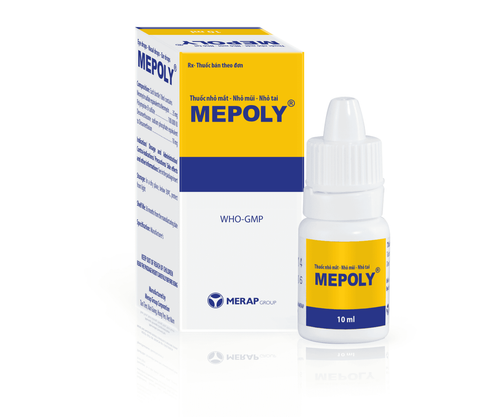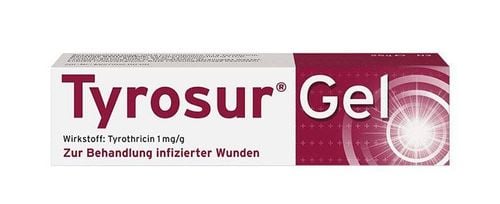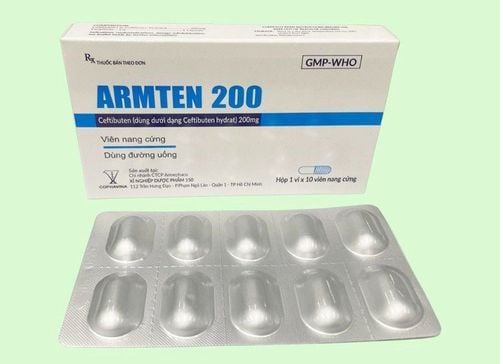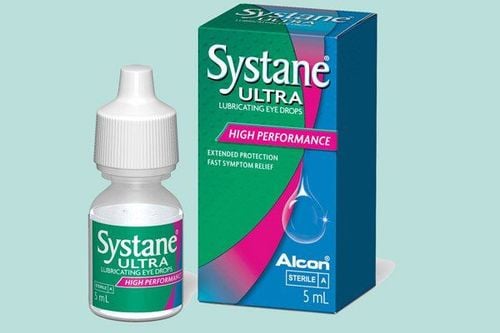This is an automatically translated article.
Optamedic medicine is in the form of an eye drop solution, packed in a box of 1 vial x 10ml. Optamedic drug belongs to the group used to treat the eyes, ears, nose and throat. Adhering to the indications, the dose of Optamedic medicine will help patients improve treatment efficiency and avoid unwanted side effects.
1. What is Optamedic?
Optamedic has the following forms and strengths:
5% or 10% eye ointment. Ointment for topical use 5% or 10%. Ear drop solution: 2.75% in isopropyl alcohol. Water-based solutions for eyewash or mouthwash: 2% and 4%.
2. Uses and indications of Optamedic drugs
Optamedic medicine contains the main ingredients are boric acid, sodium borate and sodium chloride.
Pharmacodynamics:
Boric acid is a topical antiseptic. Pharmacokinetics:
Boric acid is absorbed from the gastrointestinal tract, through damaged skin, wounds and mucous membranes. Optamedic is not readily absorbed through intact skin. Approximately 50% of the dose of Optamedic that will be absorbed is excreted in the urine within 12 hours, the remainder can be excreted within 5-7 days. Effects of Optamedic:
Boric acid is a topical antiseptic with weak bacteriostatic and fungicidal effects. Often have been replaced by disinfectants, which are more effective and less toxic.
Optamedic is indicated for:
Eye drops or eyewash; Anti eye irritation; Treat stuffy nose and runny nose; Treatment of allergic rhinitis. Optamedic can be used even for infants.
2. Contraindications of Optamedic
Contraindicated to use Optamedic in case of hypersensitivity to the components of the drug.
3. Instructions for using Optamedic
Optamedic for eyes: Apply to the lower eyelid 1-2 times a day. Optamedic for eyewash: Put 1-3 drops in each eye. Optamedic for ear drops: Put 2 - 4 drops in the ear. Optamedic for external use: Optamedic applied to the skin, 3-4 times a day. Note: Optamedic ointment should not be used on its own to treat tinea capitis or tinea pedis for longer than 4 weeks or itching for more than 2 weeks. The above Optamedic dosage is for reference only. The specific dose of Optamedic depends on the condition and the progression of the disease. To get the right dose of Optamedic, patients need to consult a doctor or medical professional.
4. Be careful when using Optamedic
Patients do not apply Optamedic many times over a large area of skin. Patients should not apply Optamedic large amounts of medication to wounds, burns, abraded or peeled skin. The risk of systemic toxicity due to topical application of Optamedic depends on the concentration, duration of drug use and age of the patient. Use caution when using Optamedic with children. Contraindicated in children under 2 years of age. If Optamedic is for external use, do not apply to the eyes.
5. Optamedic side effects
At therapeutic doses, Optamedic is well tolerated. However, during the use of Optamedic, patients may still experience side effects such as:
On the digestive system: Digestive disorders, nausea and diarrhea. On the skin: Erythema, irritation, itching and hair/hair loss. On the central nervous system: Excitement is then suppressed and fever. If experiencing these symptoms, the patient should stop using Optamedic and notify the doctor for appropriate treatment.
5. Notes when using Optamedic
Care should be taken when using Optamedic for people with severe liver and kidney failure. Pregnant and nursing women should consult their doctor before taking Optamedic. Absolutely do not use when Optamedic drugs show signs of discoloration, mold, watery or expired. The article has provided information on dosage, contraindications, notes during use and Optamedic's therapeutic uses. To ensure that Optamedic drugs work optimally and prevent side effects, patients should consult their doctor/pharmacist before use.
Please dial HOTLINE for more information or register for an appointment HERE. Download MyVinmec app to make appointments faster and to manage your bookings easily.













